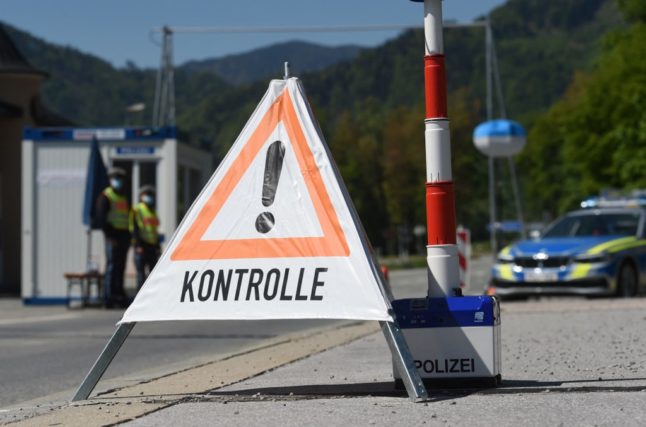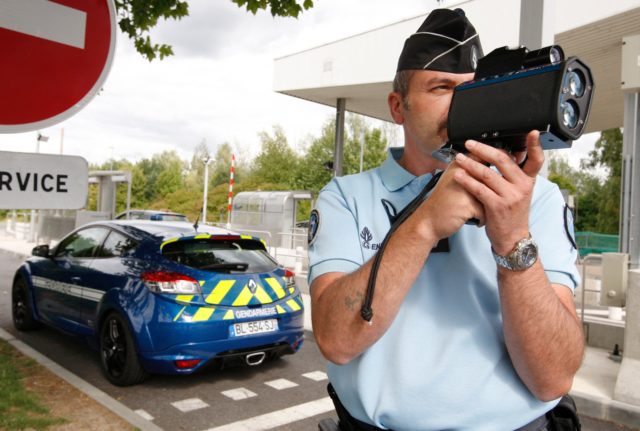Austria’s Interior Minister Gerhard Karner said Thursday his country will veto EU members Romania and Bulgaria joining the passport-free Schengen area, as he attended a meeting of EU colleagues in Brussels.
“I think it is wrong that a system that does not work in many places should be enlarged”, he said.
Decisions on Schengen enlargement have to be taken unanimously.
Austria, which is experiencing a strong increase in asylum requests, fears that admitting Bulgaria and Romania would increase irregular immigration.
READ MORE: ‘A stupid prank’ – Why has Austria vetoed enlargement of Schengen area?
Karner said his country had recorded “over 100,000 illegal border crossings this year”.
The meeting of EU interior ministers was expected to approve Croatia joining Schengen, which currently encompasses 22 of the EU’s 27 member countries plus Switzerland, Norway, Liechtenstein and Iceland.
Germany, on the other hand, said it would support bids by the three countries to join the Schengen area, according to statements given by German Interior Minister Nancy Faeser in Brussels on Thursday.
Faeser added that she did not share the Austrian opposition to expanding the visa-free travel zone.
“I cannot understand Austria’s position in this respect”, she told reporters ahead of the EU Council talks. “I know that Austria has big domestic debates over the issue”.
READ ALSO: ‘Inhuman speech’: Austria’s far-right blasted for wanting to tie social benefits to German skills
But Austria had some support from the Netherlands when it came to keeping Bulgaria — which borders Turkey — out of Schengen.
“For us, it is a yes to Croatia and it is yes to Romania,” Dutch Migration Minister Eric van der Burg said.
“But we don’t agree with the commission (recommendation) when it comes to Bulgaria,” he said, advancing concerns about “corruption and human rights”.
However the Bulgarian and Romanian bids to join Schengen are joined and meant to be decided together. The Croatian one is considered separately.
Nehammer asks for a decision postponement
A few hours before the decisive meeting of EU interior ministers, Federal Chancellor Karl Nehammer (ÖVP) has reiterated Austria’s ‘no’ to Bulgaria and Romania joining the Schengen area, broadcaster ORF reported.
At a joint press appearance with the leader of the European People’s Party (EPP), Manfred Weber, Nehammer pleaded on Wednesday evening in Vienna for the decision to be postponed until next autumn. Weber expressed understanding of Austria’s worries and concerns but not for the veto.
During a brief press appearance, Nehammer reiterated Austria’s arguments that the Schengen area “does not work”. If Austria, as an internal Schengen country, had already picked up 75,000 unregistered migrants this year, this was a “security issue that we cannot wipe away”, he said.
READ ALSO: Why is support for Austria’s far-right FPÖ rising?
Domestic criticism
Prior to the meeting of EU interior ministers, criticism of Interior Minister Karner’s stance came from the SPÖ and NEOS, but also from party colleague and Vice-President of the EU Parliament Othmar Karas (ÖVP). A Schengen blockade would not contribute to solving the asylum problem and had nothing directly to do with it, they said.
Mixing the two was “irresponsible and unspeakable”, Karas said.
READ ALSO: Tents for asylum seekers stir debate in Austria
The former Czech Foreign Minister Karel Scharzenberg was equally harsh in his criticism of Vienna’s veto. This was “pure domestic politics. I appreciate Austria’s role in the Balkans. But this veto is a stupid prank. Hopelessly self-centred,” Schwarzenberg said in an interview with the “Kleine Zeitung”.



 Please whitelist us to continue reading.
Please whitelist us to continue reading.
Member comments